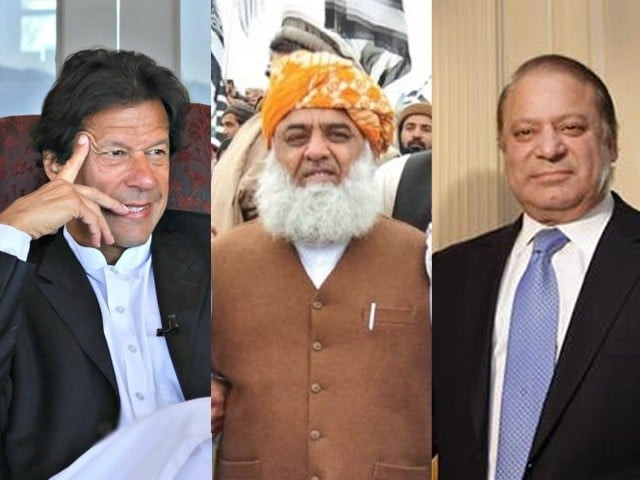Lies, hypocrisy and ugly truths
Our faith in government cannot be restored unless those who govern us live by the same rules as everyone else.

Our faith in government cannot be restored unless those who govern us live by the same rules as everyone else.
We do not begrudge parliamentarians their wealth. Given the nature of politics in Pakistan, it is all but inevitable that only the wealthy can afford to run for office. But it is not tolerable for the already-wealthy to enrich themselves at the expense of the exchequer of a poor nation, and these financial disclosures are meant to be a safeguard against such illicit activity: if there is an unusual increase in a politician’s wealth, people have the right to ask how it happened. But the process appears to have become a joke. There is absolutely no standard imposed on how the disclosures are to take place. For starters, there is no agreement on whether to use cost of acquisition or current market price as the value of an asset. This may sound like a trivial accounting rule, but it matters: land acquired for Rs18 million in the 1970s is worth considerably more than land bought for the same amount today. Politicians seek to obfuscate the true nature of their wealth by using irrelevant and outdated methods of valuing their assets. And some appear to have used different methods in different years to hide what appear to be substantial increases in their net worth.
Others have not even pretended to follow any modicum of sane accounting rules and entered unjustifiably low valuations for assets that even a cursory evaluation would suggest are worth significantly more. In this, we would like to point out that Prime Minister Nawaz Sharif’s valuations for his considerable assets seem absurdly low. What is troubling is that neither the ECP nor any other government agency has any mechanism for evaluating the accuracy of parliamentarians’ claims.
We seem to have been asked to take their words for it, which appears to defeat the purpose of the whole exercise. But what is disgraceful is the fact that about half of all legislators in the country have not paid a rupee in income taxes at all, and one in eight have not even registered themselves as taxpayers. Indeed, the party that effectively made anti-corruption its platform — the Pakistan Tehreek-e-Insaf — appears to have done no better than its older, more traditional rivals in terms of parliamentarians who pay their taxes or are registered with the Federal Board of Revenue.
If we sound harsh and judgmental, we mean to be. These are not ordinary people and their personal finances are not their private affairs that they have a right to keep secret. These are public officials who ask to be trusted with the nation’s purse, and we demand better accountability of them. If they think they are above disclosing the truth, above respecting the voters enough to be honest with us, then they deserve to be driven out of office. Our republic cannot survive without trust in the system of government, and our faith in government cannot be restored unless those who govern us live by the same rules as everyone else.
Published in The Express Tribune, December 29th, 2013.
Like Opinion & Editorial on Facebook, follow @ETOpEd on Twitter to receive all updates on all our daily pieces.








1724319076-0/Untitled-design-(5)1724319076-0-208x130.webp)






COMMENTS
Comments are moderated and generally will be posted if they are on-topic and not abusive.
For more information, please see our Comments FAQ